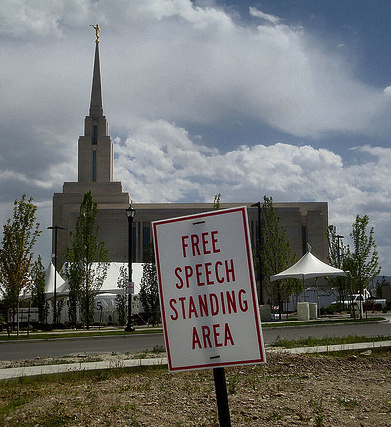Social scientists call this “context collapse.” A joke that you make among friends would not be understood if you made the same joke among, well, everyone else. And even when you say things to a group of like-minded people — say, at an obscure conference where attendees might be tweeting or taking video — you can no longer assume that the thought will stay in that context.
— Mike Rosenwald in an interesting Washington Post opinion piece, Will the Twitter Police make Twitter boring? This article garnered some backlash as well as thoughtful dissent from Alex Howard on the value of Twitter as social media watchdog.

It’s worth pausing on this idea of context collapse, especially as we interact online in more decontextualized, default-public settings. It’s not only the distant nature of all internet interaction, but the way social networks have over the past decade have created quasi-intimate settings (Look! Another baby picture!) while simultaneously removing physical context of your current social sphere (I’m wearing a suit, in an office.). Today, social networks are places where you can interact from the palm of your hand with your boss, your brother, and your barista — all at once, 24 hours a day. It’s a new normal for both communications and context.
While Facebook privacy settings and Google+ circles exist, the reality is that few use them to a significant level of granularity, and Twitter defaults to public. As content creators we’re charged with figuring out the new social norms that apply — and as consumers we’re learning to strike the balance between appropriate call-outs for bad behavior and online vigilantism.
Photo credit: arbyreed